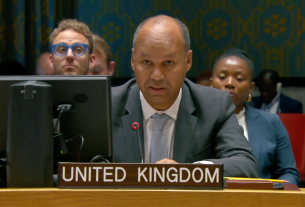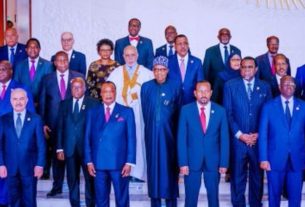Kosovo’s Prime Minister Albin Kurti has blamed Serbia for a powerful explosion on Friday that damaged a critical water canal, temporarily cutting off water and power supplies to several cities in the country. The explosion, which occurred in the Vrage region, located 60 kilometers north of the capital, Pristina, is part of a series of violent incidents in the northern part of Kosovo, a region predominantly inhabited by the ethnic Serb minority. These incidents have further strained already tense relations between Kosovo and Serbia.
Details of the Explosion and Its Impact
The explosion in Vrage occurred on the evening of Friday, November 29, 2024, disrupting the water supply to various urban areas and affecting the operation of several key power plants in Kosovo. The blast is the latest in a string of violent attacks in the region, including two prior explosions targeting police stations and local government buildings, which have escalated security concerns.
Prime Minister Kurti quickly attributed the attack to “official Belgrade and its criminal structures,” singling out Milan Radoicic, a Serb politician and businessman with close ties to Serbia’s ruling populist party and President Aleksandar Vucic. Radoicic is wanted by Kosovo authorities for his alleged role in a 2023 gunfight involving Serb gunmen, which resulted in the death of a Kosovar police officer. Despite being charged, Radoicic has not been arrested, and Pristina claims he remains protected by Belgrade.
Kosovo-Serbia Tensions and Political Context
Kurti’s accusations reflect the ongoing political and ethnic tensions in northern Kosovo, a region that remains a flashpoint in the broader dispute between Kosovo and Serbia. Kosovo, which declared independence from Serbia in 2008, is still not recognized by Belgrade, which views the territory as an integral part of its sovereign state. This unresolved issue has led to years of diplomatic friction, particularly in areas with large Serb populations.
The Kosovo-Serbia dispute traces back to the violent breakup of Yugoslavia in the 1990s, culminating in the 1999 NATO bombing campaign against Serbia following the Kosovo War. The war left around 13,000 people dead, predominantly ethnic Albanians, and led to the eventual withdrawal of Serbian forces from Kosovo. Despite Kosovo’s independence, Serbia, supported by Russia and a few other countries, has refused to recognize its sovereignty.
International Reactions and Diplomatic Efforts
Following the explosion, Serbia’s Foreign Minister Marko Djuric condemned the attack but criticized Kurti’s administration for hastily blaming Serbia without presenting evidence. Djuric called the accusations “baseless” and claimed they were a “diversion” meant to escalate tensions and derail efforts for peace talks.
The European Union and the United States have also condemned the attack, emphasizing the need for accountability. The U.S. Embassy in Pristina released a statement urging that the perpetrators be brought to justice, stating, “These violent actions have no place in a democratic society, and those responsible for these criminal attacks against the legitimate authorities of the Republic of Kosovo should be held accountable.”
Despite these condemnations, the root causes of the violence lie in the fragile political and ethnic divisions within Kosovo, particularly in the north, where Serbs often reject the authority of Pristina. Kosovo’s political leadership has been under pressure to deliver on agreements made with Serbia, including the creation of the Association of Serb-Majority Municipalities, which aims to give ethnic Serbs in Kosovo greater autonomy.
The Path Forward: EU and U.S. Mediation
Efforts to normalize relations between Kosovo and Serbia have been ongoing, with the European Union and the United States playing a central role in facilitating dialogue. In 2023, both Kurti and Vucic agreed to a set of commitments that aimed at stabilizing relations, including Kosovo’s pledge to establish the Association of Serb-Majority Municipalities. However, progress has been slow, and implementation has been fraught with challenges.
The latest violence and accusations underscore the difficulty of reaching a lasting resolution. Kosovo’s leadership faces domestic pressure to address Serb grievances, while Serbia remains steadfast in its refusal to recognize Kosovo’s independence. Both sides are expected to continue negotiations, though analysts warn that such explosive incidents could set back the peace process.
Increased Security Presence
In response to the escalating violence, NATO-led peacekeepers, known as KFOR, have increased their presence in Kosovo, particularly in the north. KFOR’s role remains crucial in maintaining stability in Kosovo, but the situation remains volatile, with tensions between ethnic Albanians and Serbs continuing to simmer.
The most recent explosion serves as a stark reminder of the challenges facing Kosovo in securing both internal stability and international recognition. As the dispute continues, the international community will be watching closely to see whether diplomacy or further violence will define the future of Kosovo-Serbia relations.



